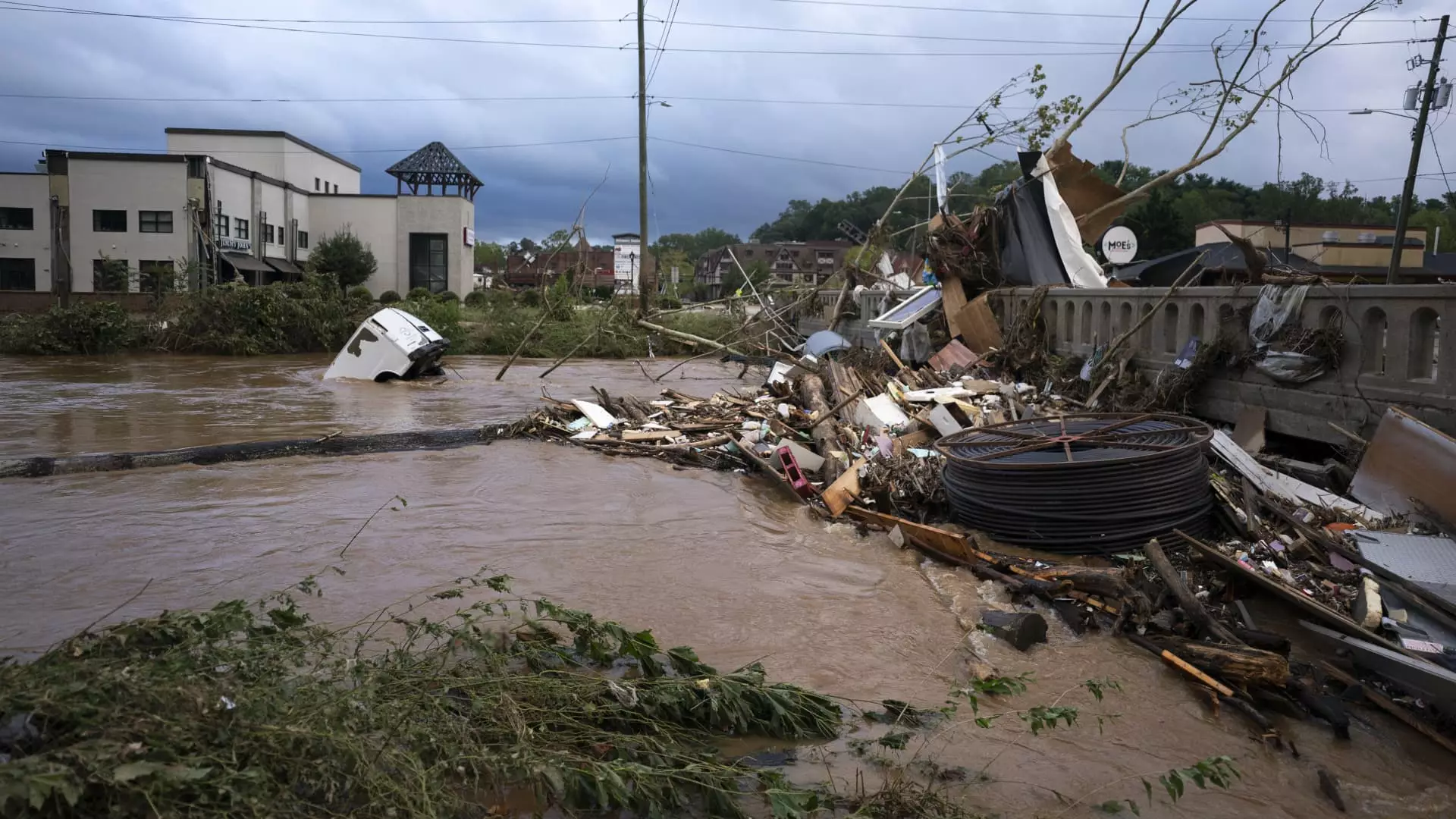As communities begin the daunting task of recovery following the devastation of Hurricane Helene, the reality of the situation extends beyond immediate physical damage. State governments, local authorities, and consumer advocates are alerting residents to the threats posed by various scams that often proliferate in the aftermath of natural disasters. Among these, price gouging has emerged as a significant concern, raising questions about consumer protection, ethical business practices, and communal responsibility during emergencies.
Price gouging refers to the practice of significantly raising the prices of essential goods and services, especially during crises when supply and demand are disrupted. For instance, if a bottled water case doubles in price from $5 to $10, it can easily fall under this category. North Carolina Attorney General Josh Stein highlighted a disturbing trend in his state: an increase in complaints suggesting rampant price gouging on fuel, groceries, and accommodations like hotel rooms. His office reported receiving over 100 complaints shortly after the disaster struck, showcasing the immediate response to one of the most egregious forms of exploitation seen in disaster situations.
While many retailers strive to maintain fair pricing, a minority exploits vulnerable consumers for profit. As Stein noted in a video message, “Most stores are bending over backwards to serve their communities.” However, the unfortunate reality remains that some businesses view disasters as lucrative opportunities rather than communal challenges. Such behavior not only undermines public trust but also complicates the recovery process for those already facing the emotional and financial strains of rebuilding.
Recognizing this issue, 37 states in the U.S. have established anti-price gouging laws, activated during declared states of emergency. These laws serve as critical protections for consumers against exorbitant pricing on necessities. However, there are inconsistencies across states regarding the enforcement and variability of these regulations. In contrast, 13 states lack such legal frameworks, prompting federal discussions on instituting a national ban on price gouging, an initiative supported by prominent figures such as Vice President Kamala Harris.
Nevertheless, critics argue that implementing strict anti-price gouging laws could have unintended ramifications, potentially disrupting the supply chain and discouraging businesses from operating in affected areas. This presents a dilemma where the well-intentioned effort to protect consumers may inadvertently harm the very businesses that could assist in the recovery process.
Should consumers suspect price gouging during their recovery efforts, experts counsel them to approach businesses directly before escalating the matter to state authorities. This proactive stance empowers individuals, allowing them to advocate for fair pricing while fostering community dialogue. If necessary, documenting the pricing with photographs can provide valuable evidence in complaints made to the attorney general’s office.
It’s essential for consumers to remain vigilant not only about product prices but also against burgeoning scams that may arise in the wake of the disaster. Scammers often impersonate representatives from reputable organizations like FEMA (Federal Emergency Management Agency), insurance companies, and local authorities, aiming to extract sensitive information or financial resources from unsuspecting victims.
State officials, such as Georgia Attorney General Chris Carr, emphasize caution when dealing with anyone soliciting personal or financial information purportedly on behalf of established entities like FEMA or the Small Business Administration. Fraudulent operators may request payments for services that are typically offered for free, which should immediately raise red flags.
Homeowners are specifically advised to be cautious of unsolicited offers for repairs and to scrutinize any contractor providing services post-hurricane. Before any work begins, consulting with insurance providers is prudent, as is verifying the credentials of any contractors by checking their references and browsing complaint histories with organizations like the Better Business Bureau.
Moreover, as people consider purchasing used vehicles during the recovery period, they must be diligent in verifying the history of these cars to ensure they are not inadvertently buying flood-damaged property. Resources such as the National Insurance Crime Bureau’s VINCheck and Carfax’s flood check can be invaluable tools for consumers.
Lastly, in the spirit of aiding affected communities, individuals looking to donate to relief efforts should remain vigilant against charity scams. It is essential to research charities thoroughly before sending contributions. Resources like Give.org and CharityNavigator.org can help validate the legitimacy of organizations and ensure that aid reaches those in dire need.
While the recovery from Hurricane Helene is essential, simultaneously protecting oneself from exploitation during this vulnerable time is paramount. Being informed and vigilant can help consumers navigate this challenging period more effectively, ensuring that assistance is received without unwarranted financial burden or deception.

